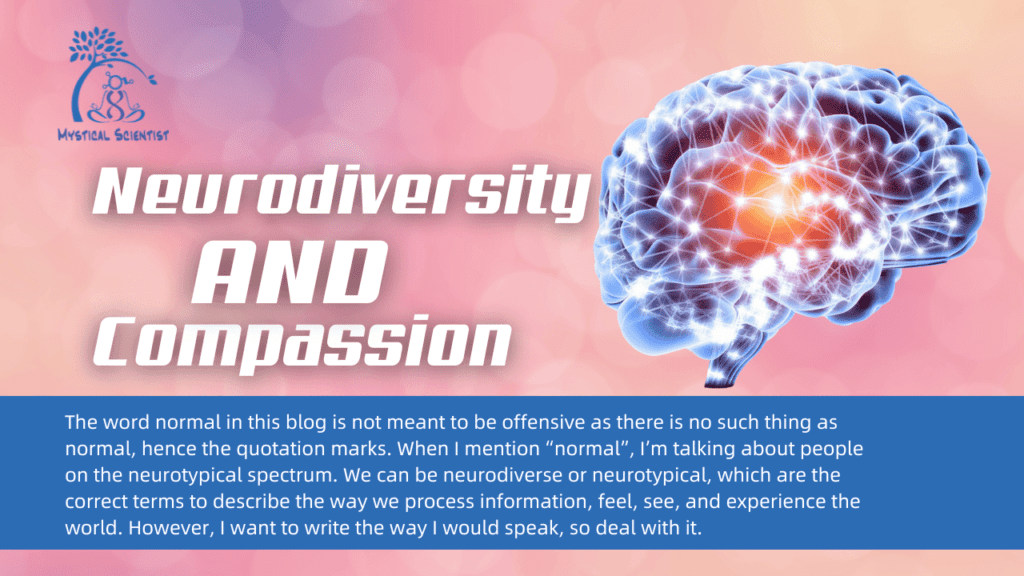
How do these two go together?
If you have been following my blog posts, you know that I have experienced some hits in my personal life during this past year. As I already shared about the death of my parents, I won’t go into that here. The only reason I’m mentioning it, is that I experienced yet another thing that brought more grief into my world.
About three months ago, my 12-year-old son was diagnosed with autism spectrum disorder. It has been a shock and turmoil for the whole family. None of us had much knowledge about autism when we started suspecting that he might be on the spectrum.
Our son is the most wonderful, humorous, and big-hearted guy. Super witty, smart, talkative, and friendly, and by everyone’s standards, he acts “normal” for his age. But he really started struggling when he entered middle school last Fall, and I noticed a pattern in his difficulties. Over the years, he has always had a hard time adjusting at the beginning of the school year when the teachers and his environment changes. But this time, the difficulties came with much higher intensity and with more alarming consequences, as we saw the failed classes in his school transcripts and started receiving phone calls about the outbursts that happened during classes.
We took him for evaluation to a clinic specialized in children with autism. After multiple months of waiting for the neurologist appointment, filling out questionnaires, taking him to different tests, we finally received the diagnosis. Yes. He is with autism. On the high-functioning side of the spectrum yet having enough difficulties with some social and behavioral aspects to warrant the diagnosis.
Multiple forces and emotions hit me all at once when we heard this information. There was the relief as a mother to have something else to blame for your child’s behavioral problems than your own mothering. There was anger for not realizing this earlier. How is it that he has been almost 13 years with autism, and we haven’t figured it out?! There was so much self-blame and shame from having treated him as “normal”, not believing his stories when they didn’t seem to make sense, yelling at him “What’s wrong with you?!” when his behavior didn’t follow the pattern of our two other children, disciplining him for not being able to perform in school and so on, when all the while he would have needed us to support him and to understand his needs. Those needs that he was not able to communicate, as he himself didn’t understand either what was different about him.

Sadness, confusion, and deep disappointment in myself were accompanied by fear. A fear of him never being able to carry out life independently. Can he manage his schooling? Go to college, get a degree? Will he ever be able to hold a job? A fear of us having to take care of him for the rest of our lives. I was afraid that I would never understand how to react, or how to connect with him, and I dreaded how much energy we would now need to put into sorting things out for him and for the whole family. How much work would it be to make sure that he will succeed in his life? And all these thoughts added weight to the shame-bucket because I shouldn’t be thinking about myself right now, as it was him who had to live with the diagnosis for the rest of his life. It was him who had to now reassess his self-image. I felt selfish as a parent.
Finally, the heavy blanket of grief descends upon you. You grieve the loss of the image of a “normal” son. You grieve your own expectations dissolving. You grieve that the idea that you had created about your child in your mind is wrong or was never correct. And what I was grieving the most, was the disruption of my ego-centric thought of being a highly compassionate person who can tap into my own experience-bank to understand others and to stand “in their shoes” to help them. How can I help someone whose mind works differently than mine? I can never relate to his inner world that is neuronally different from mine. My theories about how we experience our emotions and thoughts won’t apply here since the brain activity, neuronal connections, and regulatory mechanisms for the incoming stimuli are different in people with autism than in us neurotypical people. I felt my pride in being wise and oh so understanding about the human psyche being flushed down the toilet…
But we don’t stay in our grief forever. And like with most of our fears. None of them are real in the end. We can transform fear into empowerment. Autism diagnosis is not the end. It’s the beginning. It doesn’t change our wonderful little 12-year-old hellion to anything different. He is the same dude we’ve always known and loved. Except that now we realize that he may be more sensitive to sounds, transitions, textures etc. We know that he may not be able to voice his needs directly but shows them with his behavior, and that he may benefit from different ways of guidance than the typical parenting tools of ‘blackmail, threats, and bribing’. Although, bribing still works for him as well, so no need for grief or despair.

And what is our imagination for if not for creating a reality that does not exist?! I have an imagination. I can listen. I can cultivate compassion by reading, listening, asking questions, trying to get into the core of the feelings that someone on the spectrum may have. His feelings are the same human feelings that we all share, he just may not have the same triggers than a neurotypical person has. His interior experience can have a magnitude we don’t comprehend, and the outside stimuli may overwhelm him when we’re not noticing anything out of the ordinary.
These are the differences I try to keep in mind when he is “acting up”. I try not to get upset about him behaving badly, but instead ask him what it is that he needs at that moment. I don’t take his behavior personally but try my best to ease his experience and show that I understand what he is going through. Even when I sometimes don’t. And, in my mind, that is compassion. His autism diagnosis is a gift that will help me stretch my empathy even further because now I have someone close to me who can show me how to be compassionate with him. It is not me who needs to teach him. It’ll be him teaching me. And we have a long way to go together and learn…
Once again, the universe has given me another opportunity to grow. I have faced yet another layer of stories, limiting beliefs, shame, and wounded parts in myself through this experience. And I have felt the opposing forces of anxiety and relief. Overwhelm and clarity. Powerlessness mixed with the feeling of grit, persistence, and the will to overcome. And that’s what life is. Constant movement of emotions.
I don’t claim to understand how to be in the shoes of a neurodiverse person, but I will keep on learning with an open mind. Empathy is our authentic wish to understand what the other person is going through. It allows us to be in the pain of others, to crawl into the hole with them, to hold their hand, and give them space for their experience without judgment. And from that place, we can support them. I don’t need to know exactly what that place looks like for my son, I just need to take his hand and let him show me.
What silliness to think that I could never be compassionate with my son just because he is with autism! Compassion doesn’t require us to be the same, neuronally, or otherwise. It’s our differences that teach us more empathy. How easy it is to understand someone who thinks and walks the same as you. Relating to others gets much harder when someone or something doesn’t resemble us. Diversity is the true test of our acceptance. It is the richness of our humanity and one of our best teachers for compassion!

